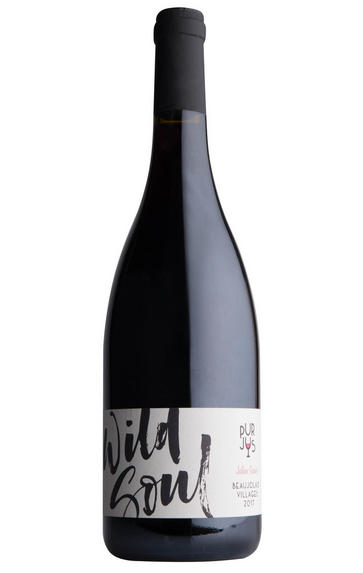
Critics reviews
William Kelley - 22/09/2018
About this WINE
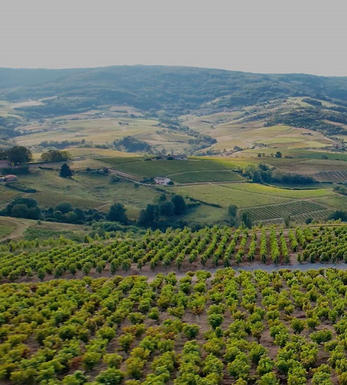
Domaine Julien Sunier
Born in Dijon to a non-winemaking family, Julien Sunier decided in his teens to pursue a career in wine. His interest was fostered by Christophe Roumier, a friend of his parents. After studying oenology and viticulture at university, Julien did work experience with Roumier and with Jasper Morris MW (the leading Burgundy specialist), in Jasper’s days running Morris & Verdin.
Julien settled in Beaujolais to work for the large Boisset group, but always intended to establish his own domaine. In 2007 his purchased two hectares in Fleurie, which he farmed organically from the outset. Today his domaine extends to a little over five hectares – a small but perfectly formed property, with holdings in Fleurie, Régnié and Morgon. As well as wines from the crus, he makes a fabulous Beaujolais-Villages – Wild Soul – from bought-in grapes, grown in Lantignié.
Julien’s approach in the winery is hands-off: he uses only natural yeast, minimal SO2 and rarely filters his wines, which are characterised by scintillating floral aromatics, great freshness, and a sense of place and energy. He is now well-established as one of the region’s star producers, part of a wave of talented, ambitious young winemakers (many of those dedicated to organic viticulture) who are today redefining how Beaujolais is perceived.
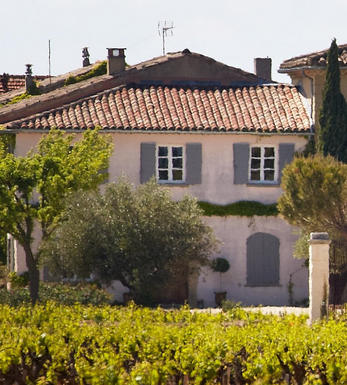
Vin de France
Vin de France is a wine classification in France that was introduced in 2010 to replace the former Vin de Table category. It represents a more flexible and modern approach to French wine production, offering winemakers greater freedom in terms of grape sourcing, blending, and winemaking techniques.
Unlike wines with controlled appellations such as AOC Alsace or Vin de Pays, which are tied to specific regions within France, Vin de France wines can be sourced from grapes grown anywhere in the country. This gives winemakers the freedom to experiment with grapes from different regions, allowing for greater creativity and innovation.
Winemakers can blend grape varieties from different regions or even different countries to create unique flavour profiles. This flexibility enables the production of a wide range of wine styles, from traditional varietal wines to innovative blends.
While Vin de France wines offer greater flexibility in production, they still must adhere to certain labelling requirements. The label must include the designation "Vin de France," along with the producer's name and the volume of alcohol. Additional information such as grape variety, vintage, and specific geographical origin may also be included on the label.
Vin de France wines may not have the prestige or strict regulations of wines from controlled appellations. However, they can still offer excellent quality and value. Many producers use Vin de France as a platform for experimentation and innovation, resulting in a diverse range of wines that cater to various tastes and preferences.
Vin de France wines are often positioned as versatile, everyday wines that are accessible and easy to understand. They can offer a good balance between quality and affordability, making them popular choices for everyday consumption.
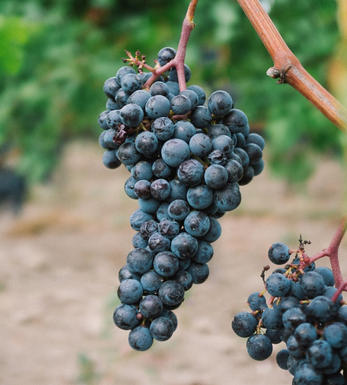
Gamay
A French variety planted predominately in Beaujolais where it is the grape behind everything from light and often acidic Beaujolais Nouveau through to the more serious and well-structured wines from the 10 cru villages. It takes its name from a hamlet just outside Chassagne-Montrachet and was at one stage widely planted on the Côte d`Or. However it was gradually phased out due to its poor yield and supposed poor quality of its wines.
The majority of Gamay wines in Beaujolais are labelled as Beaujolais or Beaujolais-Villages and are deliciously juicy, easy drinking, gulpable wines. Of more interest are the Cru wines from the 10 villages in the north of the region where the soil is predominantly granitic schist and where the vines are planted on gently undulating slopes. These can be well-structured, intensely perfumed wines, redolent of ripe black fruits and, while delicious young, will reward medium term cellaring.
Gamay is also grown in the Touraine region of the Loire where it produces soft, well-balanced, gluggable wines for drinking young.


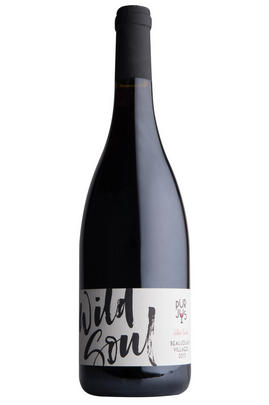
Buying options
Add to wishlist
Description
Julien Sunier started out with three tiny parcels in Fleurie, Morgon and Régnié. In the decade since, the size of his holdings has increased very little, but Julien’s reputation has grown considerably. He is today regarded as one of the finest makers of the expressive, mineral style of Beaujolais which is putting the region back on the connoisseur’s map.
Explosive aromatics are a hallmark of Julien’s wines. With its beguiling bouquet of summer pudding and violets, Wild Soul is no exception. It is light-bodied, fresh and moreish – in short, everything a Beaujolais Villages should be. Julien buys the grapes for this cuvée from a friend, and uses no sulphur whatsoever during vinification or bottling. Drink now to 2020.
wine at a glance
Delivery and quality guarantee